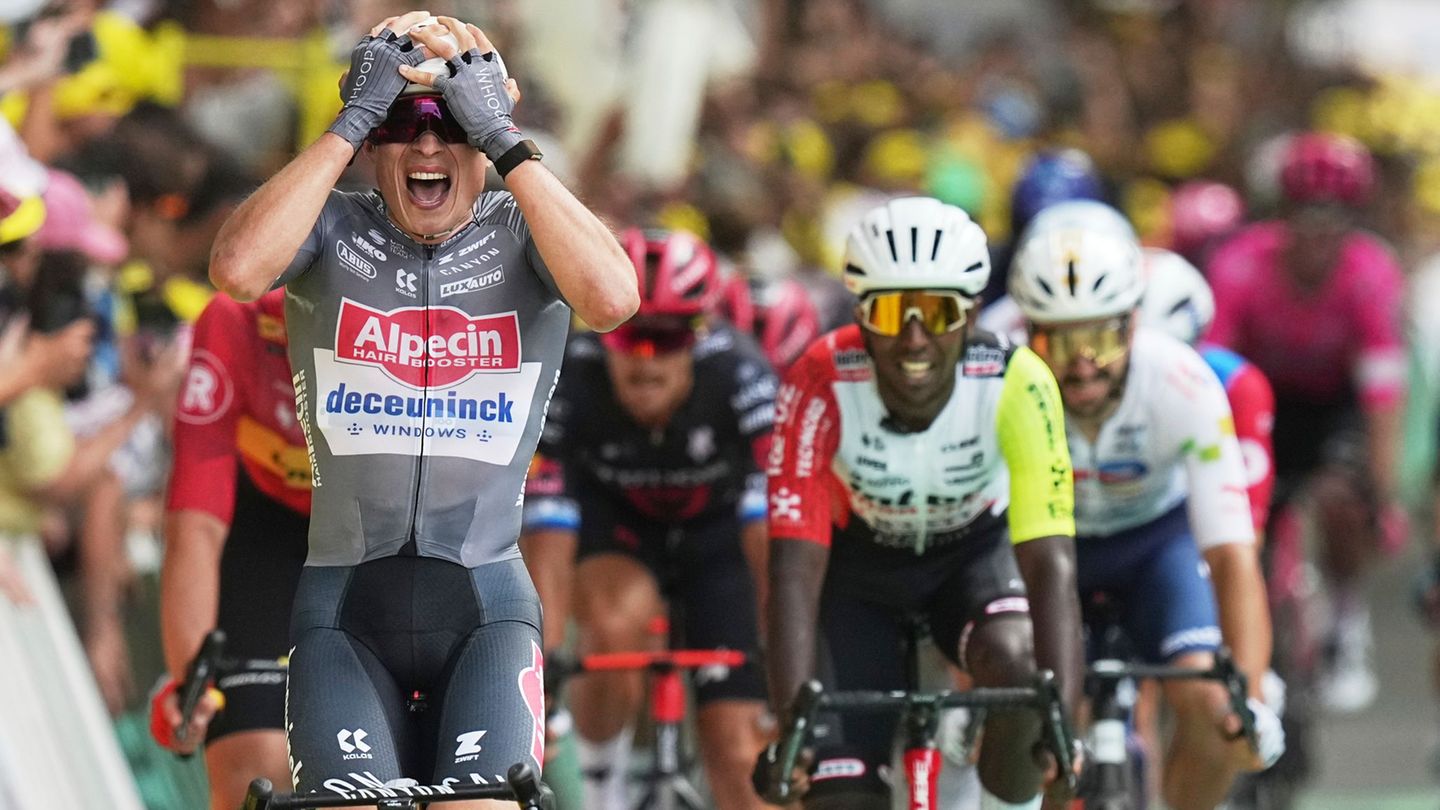Solingen is in shock. Several people die at a town festival – attacked by a perpetrator with a knife. The road back to normality will be very difficult.
Joy has given way to fear. Music and laughter have given way to a subdued silence. On the morning after the Solingen city festival that everyone is now talking about, a wind whistles through a deserted pedestrian zone. Behind a barrier, guarded by police officers, you can still see a carousel with bear motifs standing still, and spotlights are still flickering on a stage. But no one is there anymore. Absolutely no one.
Solingen, a city of 160,000 inhabitants sandwiched between Düsseldorf, Cologne and Wuppertal, is struggling to come to terms with what happened on Friday evening at the celebration of its 650th birthday, the “Festival of Diversity”. And with it, one can say, an entire country. NRW Interior Minister Herbert Reul (CDU) is arriving that night. Federal Chancellor Olaf Scholz is demanding a harsh punishment for the perpetrator.
At this point, almost nothing is known about the background. What is known is that on Friday evening, an offender apparently randomly attacked people with a knife at the festival. Three visitors – a woman and two men – died and several were seriously injured.
Because of his targeted approach – he stabbed the victims in the neck – it must be assumed that it was an attack, the authorities say. After the crime, he is said to have fled in the tumult. The police called on people to avoid Solingen city center via Facebook.
Fear is spreading
The morning after, much of what happened is still unclear. But the emotional state is palpable. “I said to my husband: we can’t go where there are lots of people anymore,” said an elderly woman who has lived in a house right next to the crime scene for decades. Suddenly you have a knife in your back. “You have to be afraid,” she said.
An employee of an ice cream parlor cautiously asks her whether she noticed anything about the incident. She says no. He says: “It’s better that way.”
Another resident says she is afraid. She didn’t sleep a wink that night. “Police, fire brigade, helicopter,” she says. She herself was not at the festival, although she had planned to at one point. “We wanted to go. But we are glad we didn’t go.” What upsets her most is that the security measures were apparently not sufficient. “I can’t understand that,” she says resignedly. “Solingen is in the headlines a lot at the moment.”
This sentence is heard remarkably often in the city. Solingen is always in the headlines. And now again. In March, four people died in a fire in an attic apartment in the city. A former tenant is said to have started it.
In June, a man dropped a bottle containing a substance in front of a Solingen shop, causing an explosion. The man died a short time later. There is speculation that the case has a connection to the machinations of the so-called Dutch Mocro Mafia, which has been discussed in North Rhine-Westphalia for weeks.
Many people will also remember a nighttime arson attack in Solingen in 1993, in which five women and girls of Turkish origin were murdered by right-wing extremists. The attack marked the low point in a series of racist attacks on people of foreign origin in Germany.
Panic instead of carefree celebration
None of this should really play a role in the 650th anniversary celebrations. Solingen is trying to present itself in a positive light. The “manageable city between the metropolises” (self-description) calls itself – of all things – “Germany’s blade city” because there is a tradition of making blades, knives and scissors, especially rapiers and swords in the Middle Ages. The “German Blade Museum” is also located in the city.
But it is not only Solingen that will have to deal with the events somehow, but also Germany. Knife attacks have increased, and Federal Minister of the Interior Nancy Faeser (SPD) recently announced stricter gun laws, but this did not fundamentally calm the debate. And in a week there will be state elections in Saxony and Thuringia.
A few steps away from the crime scene in Solingen, someone left a note that read: “We will never forget you.”
Source: Stern
I have been working in the news industry for over 6 years, first as a reporter and now as an editor. I have covered politics extensively, and my work has appeared in major newspapers and online news outlets around the world. In addition to my writing, I also contribute regularly to 24 Hours World.




